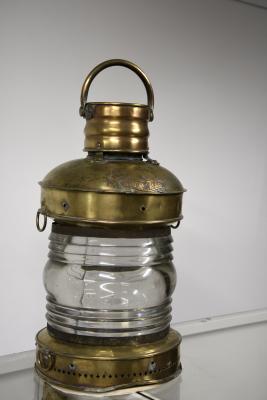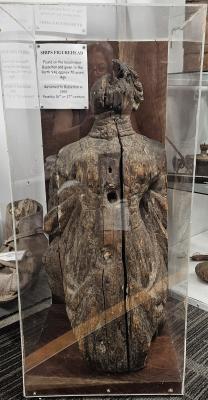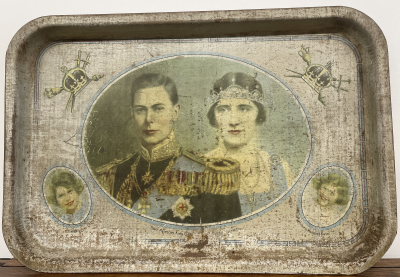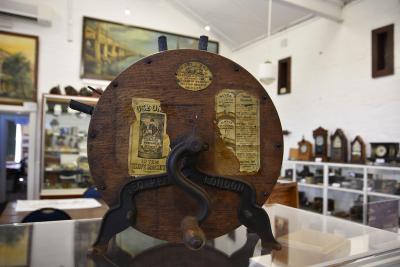Gaunt Whaling Grenade or Bomb
Cast iron harpoon head that would have been propelled by an explosive charge that was mounted and lit behind its wide base. The head of the harpoon has four blunt prongs which would, under explosive charge, have buried themselves into the whale. This harpoon would have been used in the local whaling activities.
The four projections cast into the nose of the harpoon are designed to stop cavitation in the water prior to striking the whale. It was found that the traditional harpoon pointed tips occasionally cause the harpoon to dip down and slide away from impacting the whale. A pointed harpoon was not needed to penetrate the skin and blubber of the hunted whale.
Walter Gaunt was the manufacturer of the grenades used on the whaling harpoons in use at
Cheynes Beach and other locations Walter moved to Maylands and started own foundry business in
9th Avenue, Maylands. This encouraged Charles Walter (Wally) GAUNT to later set up a foundry in
1936 at number 40 Tower Street. He traded as 'C.W. GAUNT' and later 'C.W. GAUNT & Sons'. Wally Gaunt died on 28th February 1968
Among the many products produced at this foundry were the grenades fitted to the Kongsberg 90mm whaling gun, in use on all the whale chasers around the Australian coastline up unto whaling ceased in 1975, these were marked with the words GAUNT cast into the side of the grenade.
Information provided by: Mr J Haskell, Wodonga.
Details
Details
Inscribed on the side are the letters
GAUNT
Whaling was one of the first industries established in WA. The Castle Rock Whaling Company based itself at Castle Bay between 1845 to 1872, as it provided shelter, water, firewood and a high point from which to spot whales. Running a whaling station at such a remote spot had its problems like drunkenness, absconding workers and in 1849 all boats and sheds were destroyed by fire.
The two main species of whales targeted by whalers at Castle Bay were the Humpback Whale and the Southern Right Whale which migrate north-south along the Western Australian coastline stopping in Geographe Bay to feed and strengthen their calves before continuing to the Southern Ocean.
Scan this QR code to open this page on your phone ->




